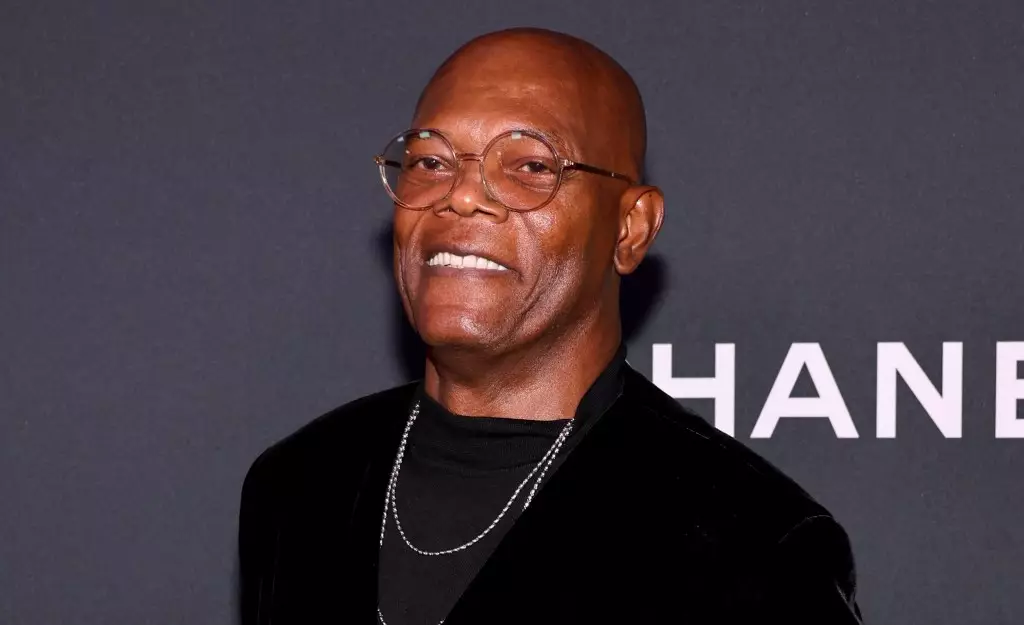In the glitzy realm of Hollywood, where the shine of accolades and awards often overshadows genuine talent, Samuel L. Jackson has thrown a bucket of cold water on the conventional narrative surrounding the Academy Awards. In a recent candid interview with the Associated Press, while promoting Netflix’s adaptation of August Wilson’s acclaimed play, *The Piano Lesson*, Jackson made it clear that he does not buy into the notion that just receiving a nomination is an achievement worthy of celebration.
Jackson’s perspective is refreshingly straightforward; he outright joked about the rhetoric that permeates awards seasons, where nominees often defer to a humble stance. “Folks will go, ‘Well it’s just an honor to be nominated.’ No it ain’t,” he quipped, highlighting the reality that many creative artists are understandably competitive and invested in securing wins. While co-star Michael Potts chuckled in agreement, the interview shone a light on the shared understanding among seasoned actors that accolades carry weight beyond mere prestige; they validate years of hard work, sacrifice, and talent.
This candidness challenges the widely accepted narrative that professes the value of humility in the face of competition. There is an undercurrent of truth in Jackson’s assertion that mere nominations can quickly fade into obscurity, often forgotten as time passes. He articulated a frustration familiar to many in the industry: once the awards have been presented, the tales of who was nominated for what often become illusive. The statistics of Oscar recognition are unmistakable; while winners bask in the glory of their achievements, the nominees frequently fade into the backdrop.
Adding to this dialogue, Jackson emphasized that the Oscars often function like a contest in which participants did not volunteer to compete. He noted, “Generally it’s a contest you didn’t volunteer to be in.” It invites reflection on the nature of achievement in the creative sphere and how awards systems can distort the definitions of success for actors and filmmakers alike.
Jackson’s sentiments echo those of many actors who grapple with the expectations that come with Hollywood stardom. The competitive nature of the Industry stirs a complex relationship with accolades, as award ceremonies often serve as battlegrounds for achieving not just recognition but also financial backing for future roles. For Jackson, the legacy of his contributions to film, including his memorable turn as Jules in *Pulp Fiction*, overshadows the need for awards validation.
In another interview, he expressed his intent to detach from the enticement of accolades as a measure of success. “I was never going to let the Oscars be a measure of my success or failure as an actor,” he stated resolutely. For Jackson, true success lies in personal satisfaction and joy derived from performing. This introspective stance opens discussions about alternative markers of achievement in the arts, suggesting that happiness may be a more fulfilling pursuit than the glitter of an Oscar.
Interestingly, Jackson’s latest project, *The Piano Lesson*, directed by Malcolm Washington, echoes the themes of cultural heritage and personal endeavor that the veteran actor holds dear. Based on Wilson’s Pulitzer-winning play, the film navigates the complex choices faced by siblings regarding an inherited heirloom, alluding to the often fraught intersections between legacy, identity, and the pursuit of success—both personal and professional.
The legacy of Jackson extends far beyond accolades; it encompasses a broader commentary on the significance of artistic authenticity and individual fulfillment. With projects lined up that include titles like *The Honest Liar*, Jackson’s dedication to storytelling remains unflinching. His choice to embrace roles that spark joy, rather than chase statues, resonates with an industry still grappling with its own evolving definitions of success and recognition.
In a world where awards chatter often spirals into competition and obsession, Samuel L. Jackson’s forthright outlook serves as a reminder of what truly matters: the art of storytelling and the joy derived from it. In his view, the Oscars may shine brightly, yet the most enduring glow comes from pursuing passion and embracing one’s own journey, contours, and all.

